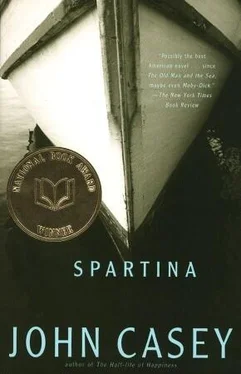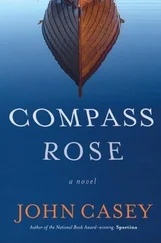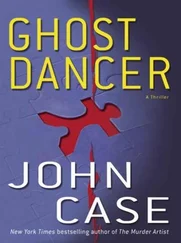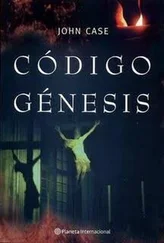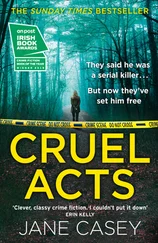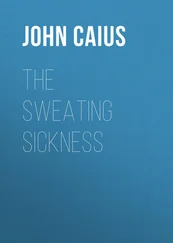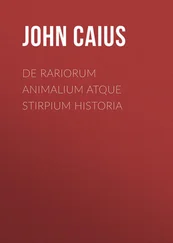He tried to calculate how long before the storm would blow by. If Spartina didn’t get pushed north, and the storm kept moving at forty knots, it would be less than ten hours. He’d have to wait for another lull to check the loran against the chart, to see if Spartina was making any headway.
Eventually the wind would move from southeast to south, and then around to southwest. By the time he’d be leaving the storm at the bottom of the cyclonic movement, the wind would be all the way around to the northwest, maybe down from hurricane force to gale force. The thought of coming out the bottom cheered him up. So far Spartina was taking it. Still tight as a tick, still coming up nicely.
The weak point was him. He began to swear at himself. He swore out loud, calling himself a stupid son of a bitch, a dumb asshole. He was trying to numb some sharper thought of what he really was. Stupid was just making a mistake. There was something in him that had done worse than that, that had prepared him for deliberate harm to himself. Spartina was fine. Captain Texeira was right about her lines, she gave no flat argument to the force of the seas. He’d done that part fine. But he’d left some bad part of his effort inside himself. Perhaps it was the part he’d thought was tough bitterness, but now, washed once with a terror that he might give in, it turned out flawed. Worse than flawed — rotten. Worse than rotten — rotting, spreading rot.
He ran out of cursing. He shook his head. He was afraid he was getting a little dingo, as though he’d got dizzy from too much sun.
He held on. He felt thick and dull but okay. Maybe he should have taken a nap while Spartina was steaming east, before the swell got too big. He spent a long time deciding whether to drink another Coke or to crack the thermos of coffee. He leaned over to pick a can of Coke out of the cooler in the locker. As he stood back up, Spartina suddenly slid forward as though she was greased. She stuck her nose into a wave. He felt her held down, caught, then lifted by the bow and spun sideways. He leaned against the spokes of the wheel. No effect. She fell back on her beam. He clung to the wheel post with one hand to keep from falling over. For a long moment he had no idea where she was or which way was up. Then she came back on her own. He felt her stern wag, but he couldn’t tell whether it was her answering the helm — still hard over — or a lucky push of the sea. And then she was nestled in the next trough as though nothing had happened. The inner rasp of adrenaline smoothed out. The taste of zinc left his mouth.
He felt a slow roiling of his sense of Spartina. He’d made her. He’d made her, but now she was the good one. She was better than him. It wasn’t alarming to hear this news, it was deeply, thickly soothing. She was lightened of a dangerous disabling weight. She wasn’t him. She’d become separate from him, and yet she was staying with him.
He feared he was getting dingo again. But at least his nerves had pricked him awake. No need for the can of Coke. He glanced around his feet but couldn’t find it. The thermos was still stuck in its bracket over the locker.
He willed himself to keep attentive to Spartina ’s motion, but some of his thoughts began to wander. He found himself thinking of the books Miss Perry gave the boys. He couldn’t get the one he disliked most out of his head. A Christmas book, not a birthday book. He could see the pretty fluffy drawings of curly-headed boys and girls, the boys in sailor suits, the girls in billowed dresses under pretty fluffy summer clouds. Everything puffed — the children’s hair and cheeks and clothes, the pretty cloud above the pretty children. A Child’s Garden of Verses.
He said out loud, “ ‘O Leerie, I’ll go round at night and light the lamps with you!’ ” He couldn’t remember any other part of the poem. Except the title—“The Lamplighter.” The line played itself again in his ear, “O Leerie, I’ll go round at night and light the lamps with you!” And again. He felt the little poem tug at some other thought, as though it was the current in a salt creek tugging at a stick half on the mud bank, half bobbing in the water.
He’d read all those damn little poems to the boys. He wouldn’t have guessed they’d have stuck. It came loose: “Now Tom would be a driver and Maria go to sea, And my Papa’s a banker …”
The boys had said, “Miss Perry says ‘pa pa. ’ ‘And my pa pa’s a banker.’ It goes ‘pa pa. ’ And Miss Perry says ‘Mar- eye -ah.’ Not ‘Mar-ee-ah.’ ”
It came again, trickling into his ear. “—and Maria go to sea, and my papa’s a banker and as rich as he can be, But I, when I am stronger and can choose what I’m to do,” he shouted out loud, “ ‘O LEERIE, I’LL GO ROUND AT NIGHT AND LIGHT THE LAMPS WITH YOU!’ ”
He found the line turning to Charlie. When Charlie was six and seven, he’d admired everything Dick did. Every dumb ordinary thing. If he split wood, dug clams, or opened a beer, Charlie would be there with his face swiveled on him like a searchlight.
Tom hadn’t been like that. Of course Tom’d had the problem of keeping up with Charlie, that’d kept him more closed in, he’d had to pretend to be indifferent to anything he couldn’t do or understand — until he got it and could spring it on Charlie whole. But Charlie had followed Dick around like a duckling — Charlie’s wide-open face had looked at Dick like Dick invented everything they found in water or mud — lobster, fish, clams. That knives could cut, that boats could float. O Leerie, I’ll go round at night and light the lamps with you.
Dick now thought it amazing that Charlie hadn’t turned sour when Dick did. Charlie hadn’t followed him into bitterness, he just wandered off his own sweet way. Maybe he’d found another Leerie to go round with.
What faint light there was began to darken. Dick could still see the dark of the sea against the lighter blur of sky, but now he lost his short glimpses across the trough to the defined planes of the wave face, facets of chipped flint. He still had a sense of the enormous distance between waves. Each trough a small valley. And he had an even more puzzled sense of whether it was Spartina who moved toward the wave or the wave which came toward her, until she lifted up and went blind in the blown spray across her windshield.
It was full dark when he sensed that the seas were growing confused. From the direction of the spattering across the windshield he figured the wind had pulled around to the southwest. Maybe west. The main roll of the sea was still from the south, but he could feel Spartina responding to bulges and shoves of wind on her starboard bow.
This was good news and bad news. The good news was that the wind shift meant Spartina was getting to the bottom of the hurricane. The bad news was that she might take some funny bounces. He couldn’t see how high the seas were running, but the time Spartina spent climbing seemed shorter. It took him a while to figure out what else was different — it was the pitch of the wind. The higher register was intermittent and more variable, rising and falling, instead of solid noise. And he could hear Spartina now. He couldn’t hear the engine, but at less than half-power that wouldn’t be very loud. What he could hear was her timbers working, groaning and creaking.
As she rolled to port in a little cross sea, he felt his right foot nudged by the Coke can.
He scooped it up, popped the top, and sucked it in. He hadn’t realized how dry he was. Almost immediately he began to sweat. He felt it popping out on his forehead and running down his sides. He reached for the thermos of coffee but put both hands on the wheel as Spartina slid sideways and rolled sharply to starboard. He turned his head at the first noise. It sounded as though he was grinding his teeth but it was the port section of window. In the glow of instrument lights, he saw the black window turn crackling white. He ducked away, his left hand still on the wheel, his right hand skidding on the floor. His left hand came loose. He was flattened against something, he couldn’t tell what. He was being pulled sideways. His left hand found an edge. It came to him slowly that what was pulling him was water.
Читать дальше
